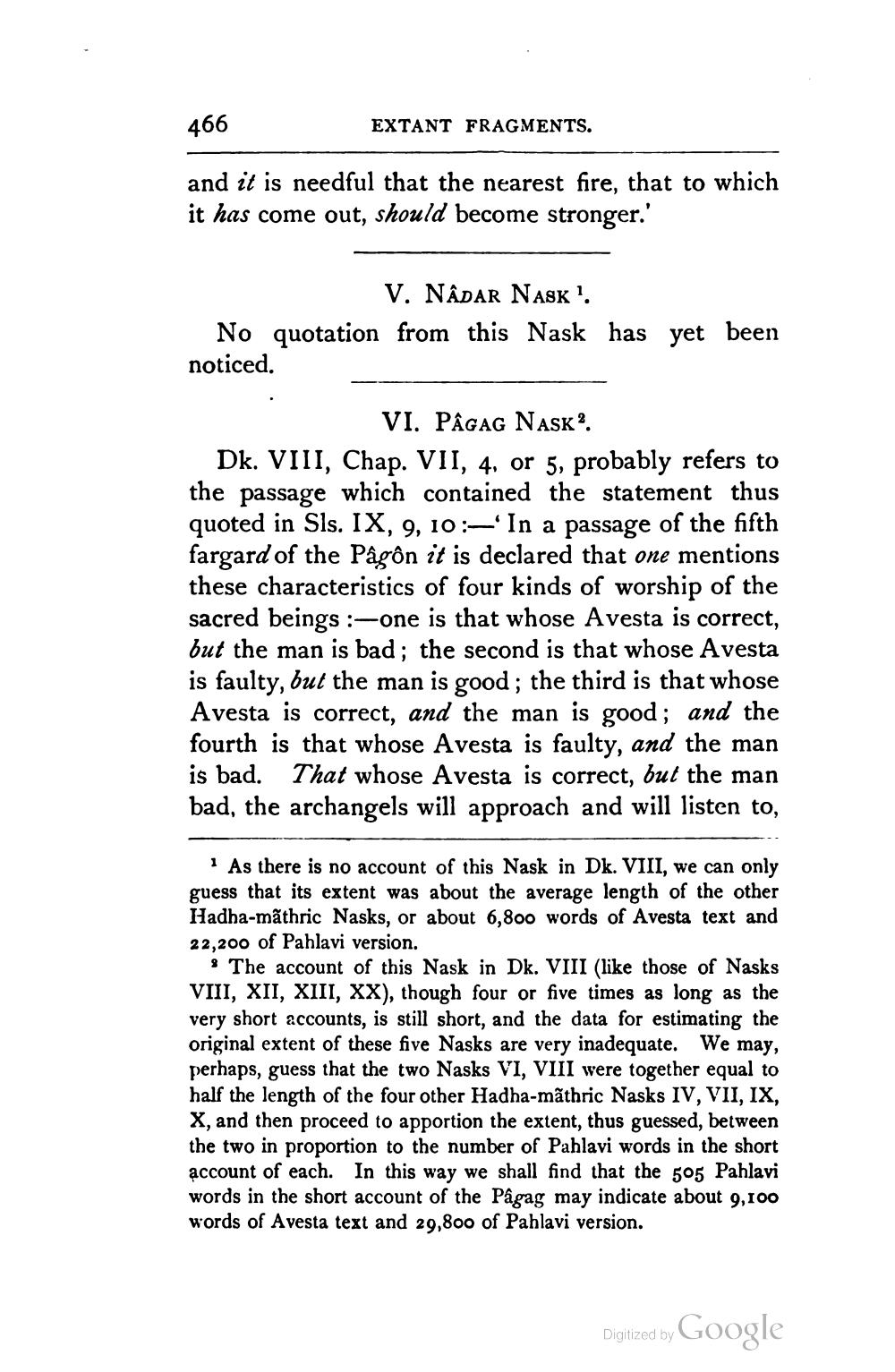________________
466
EXTANT FRAGMENTS.
and it is needful that the nearest fire, that to which it has come out, should become stronger.'
V. NÂDAR NASK!. No quotation from this Nask has yet been noticed.
VI. PÂgaG NASK? Dk. VIII, Chap. VII, 4, or 5, probably refers to the passage which contained the statement thus quoted in Sls. IX, 9, 10:—'In a passage of the fifth fargard of the Pâgôn it is declared that one mentions these characteristics of four kinds of worship of the sacred beings :-one is that whose Avesta is correct, but the man is bad; the second is that whose Avesta is faulty, but the man is good; the third is that whose Avesta is correct, and the man is good; and the fourth is that whose Avesta is faulty, and the man is bad. That whose Avesta is correct, but the man bad, the archangels will approach and will listen to,
As there is no account of this Nask in Dk. VIII, we can only guess that its extent was about the average length of the other Hadha-mãthric Nasks, or about 6,800 words of Avesta text and 22,200 of Pahlavi version.
The account of this Nask in Dk. VIII (like those of Nasks VIII, XII, XIII, XX), though four or five times as long as the very short accounts, is still short, and the data for estimating the original extent of these five Nasks are very inadequate. We may, perhaps, guess that the two Nasks VI, VIII were together equal to half the length of the four other Hadha-mãthric Nasks IV, VII, IX, X, and then proceed to apportion the extent, thus guessed, between the two in proportion to the number of Pahlavi words in the short account of each. In this way we shall find that the 505 Pahlavi words in the short account of the Pâgag may indicate about 9,100 words of Avesta text and 29,800 of Pahlavi version.
Digitized by Google




